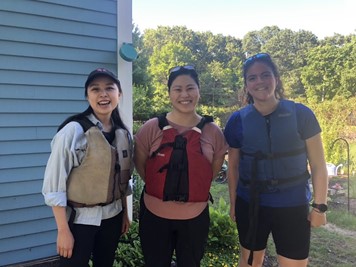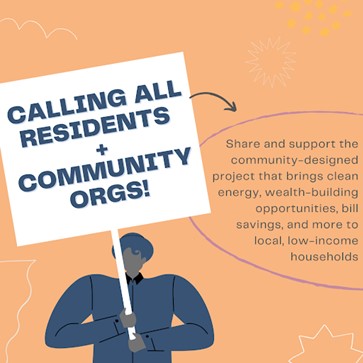I decided to accept two unique internships this summer. One internship was working at the office of Maria Robinson, a Massachusetts State Representative for the 6th Middlesex District. My second internship was at Solstice Initiative, a Cambridge-based nonprofit working on a community solar project that takes a participatory planning approach. I worked 15 hours a week in a span of 10 weeks with Rep Robinson and 30 hours each week with Solstice.
Office of State Representative Maria Robinson
I attended legislative briefings, drafted testimonies, and supported the work of advocacy groups for the Better Buildings Act. I watched the public health hearing that went over testimonies on the vaccine bills online. I have learned more about the legislative process in Massachusetts and the different stakeholders involved in each process through this internship. A great takeaway experience about working at an office of a State Representative is the multitude of subject matter that you come across. My interest is in environmental policies, but I had the opportunity to familiarize myself in current bills related to wage theft, foster care, state heating systems, community immunity, and more.
An internship with a also State Rep included speaker series where current staff members and elected officials shared the work they do at the State House. The legislative aide also connected me with people that have similar career interests as me, such as an Associate Director of Policy for a nonprofit organization who is also working as a city councilor.

Solstice Initiative
This summer I became deeply involved in helping Solstice with their pilot project in Boston. The pilot is grounded in a participatory approach to building community solar. Solstice act as technical advisors and work with residents from the start. Residents are included in decision-making on issues such as where they would like the project location and what ownership/subscriber model residents are interested in. We are currently focused on building a community advisory board with residents and business owners living in the Boston area, who will work with us in making key decisions on the community solar project.
At Solstice Initiative, I worked on building community outreach material and engagement in Dorchester, Roxbury, and Mattapan area. My coworker and I visited neighborhoods each week to speak with business owners and community leaders, dropped off flyers, and tabled at various farmer’s market. The first one we attended was at Codman Square, where we had the opportunity to engage directly with the residents. We had educational materials discussing how to calculate energy burden, understand what energy justice might look like to individuals, and to promote and recruit members to join the Community advisory board.

A few of the major components of my role where language access, environmental education, and relationship-building.
Language Access
We work in neighborhoods where English may not be their first language. We researched the demographic of the neighborhoods and what language is commonly spoken that isn’t English so we could translated our material for sharing. Our flyers and some surveys are translated into Vietnamese, Portuguese, Spanish, and Haitian Creole so that we can get a wider reach of the community. We want to hear from the community and that includes people whose preferred languages is not English. Translating our material into these languages upholds Solstice’ values to include people who were historically left out of these conversations on clean energy.
Environmental Education
Not many people know what community solar is or know the difference between rooftop and community solar. We’ve talked to people that never heard of energy burden or energy justice. Tabling at farmers market help us have conversations in person but we are also working on creating a webinar series that goes over concepts like environmental justice. We’re working on a community solar project but including an educational component helps expand the work we are doing to reach people who don’t come across these conversations in their personal lives.

Relationship-building
Lastly, trust and relationship building are huge when it comes to participatory planning. We are a nonprofit that is relatively new. We have spoken with many different community organizations and learned that one of the keys to a successful project is fostering relationships with the people we want to continue working with. It helps to reflect on how Solstice can help create a mutually beneficial relationship. Some of the questions I ask myself include, “what are we asking of other groups?” and “what can we offer to other groups?”
This summer, I’ve connected with many of the neighborhood organizations and learned about the priorities and goals that each neighborhood has. My two internship experiences were very rewarding—I got to work with great team members to further the organizations’ mission statement and goals.